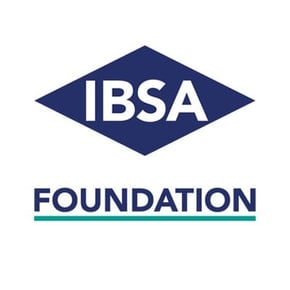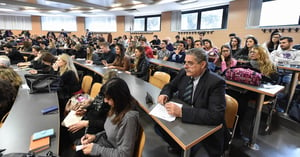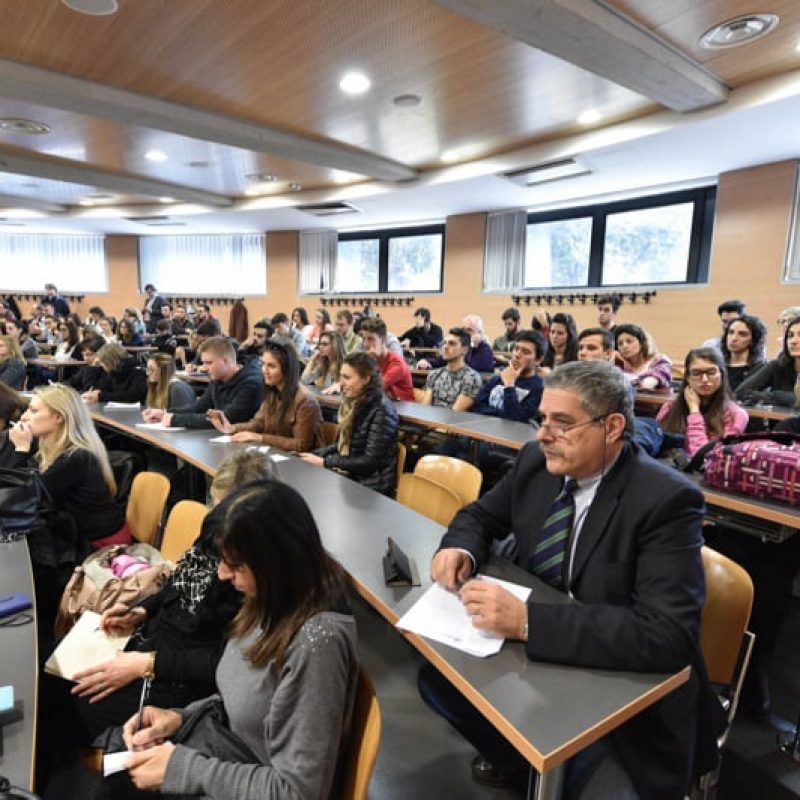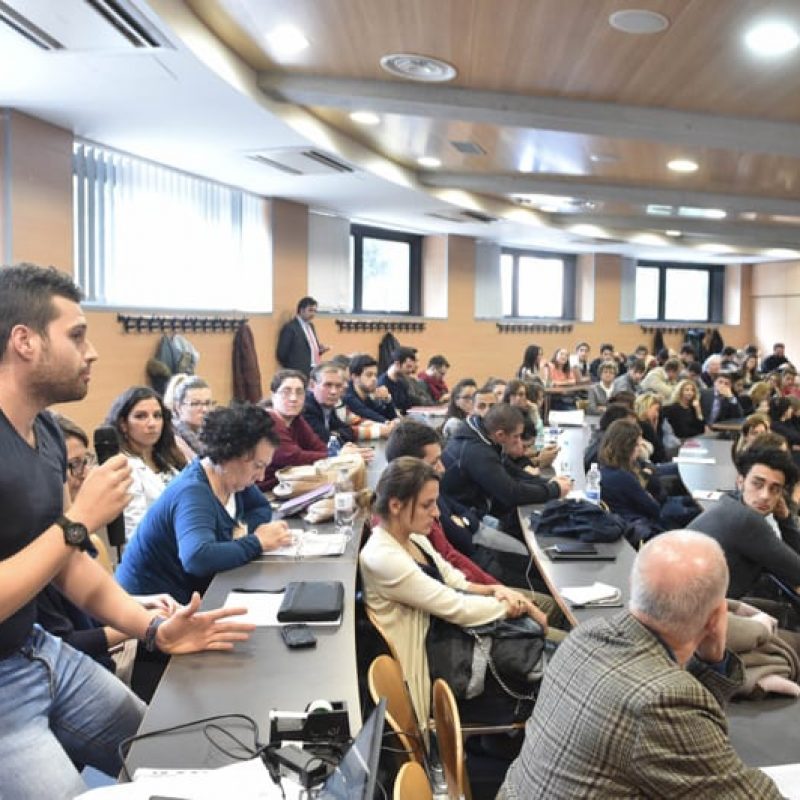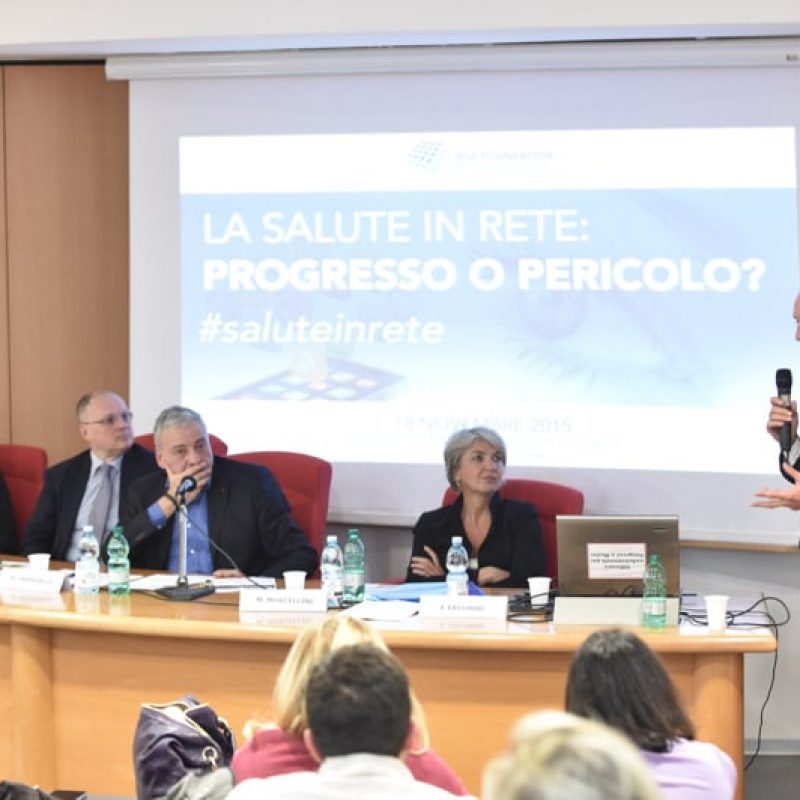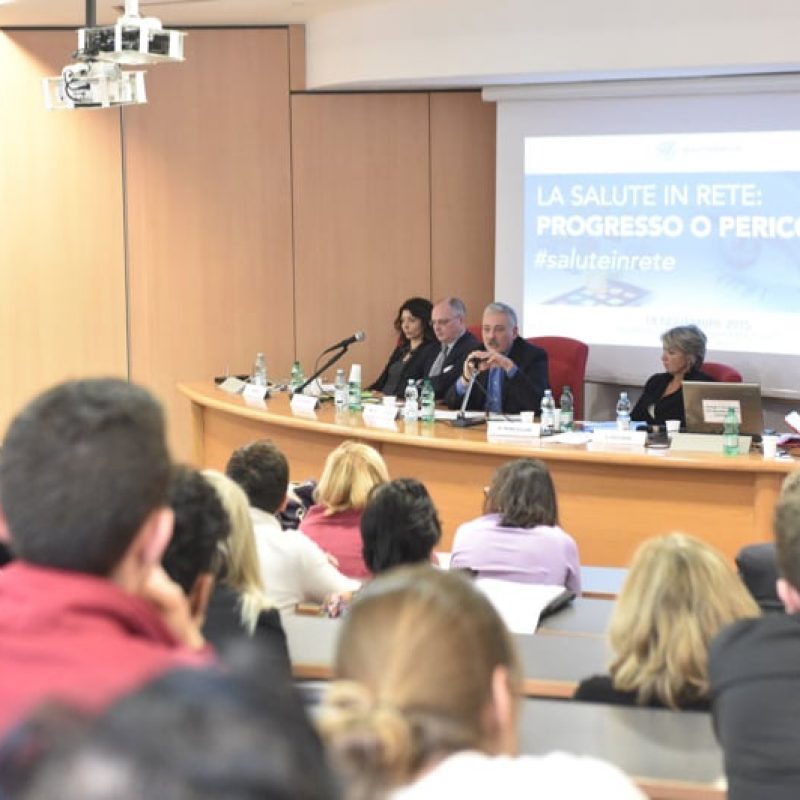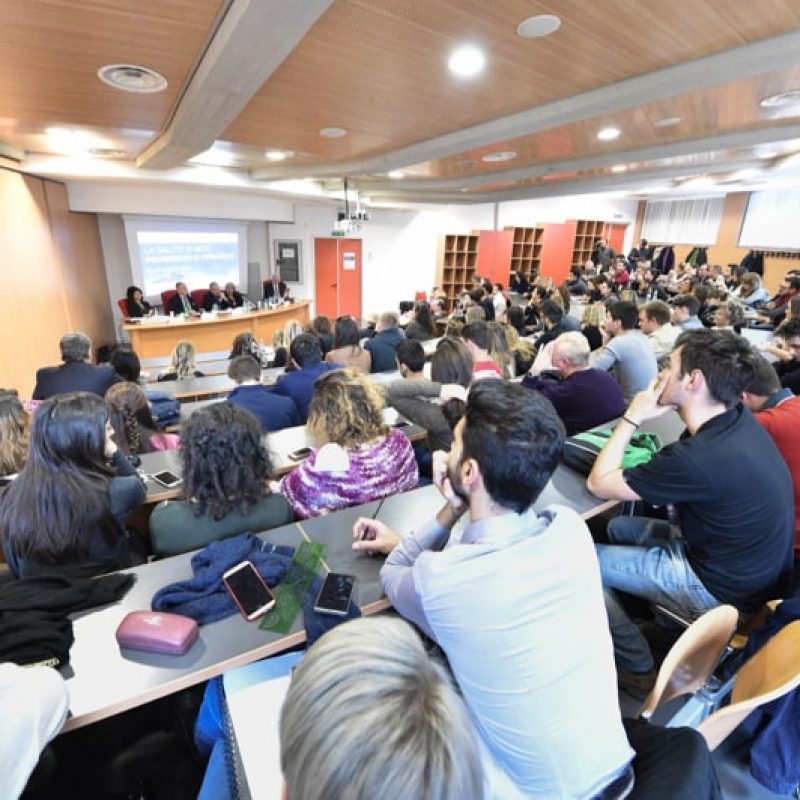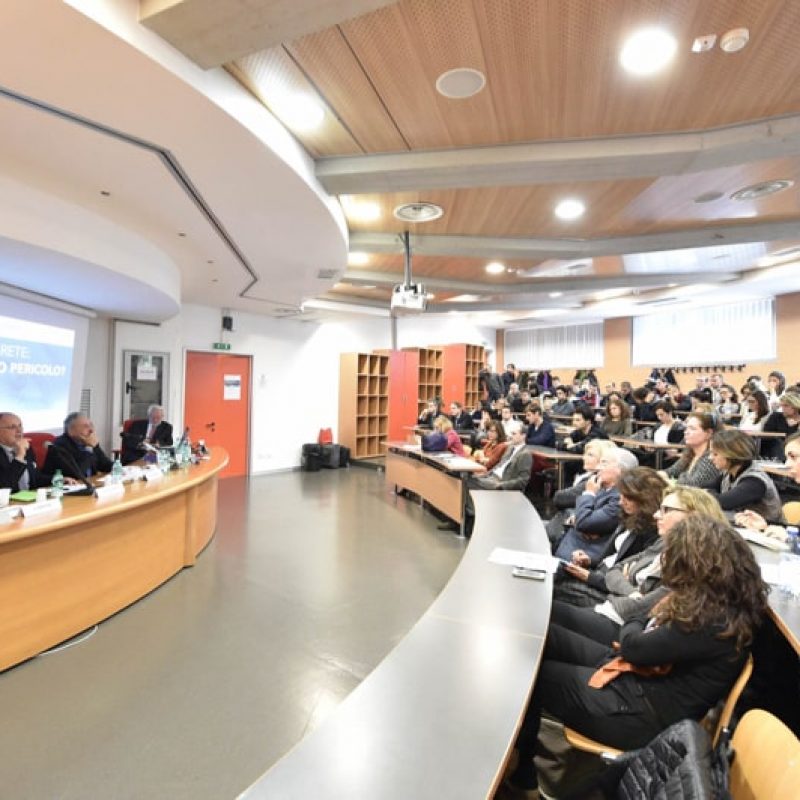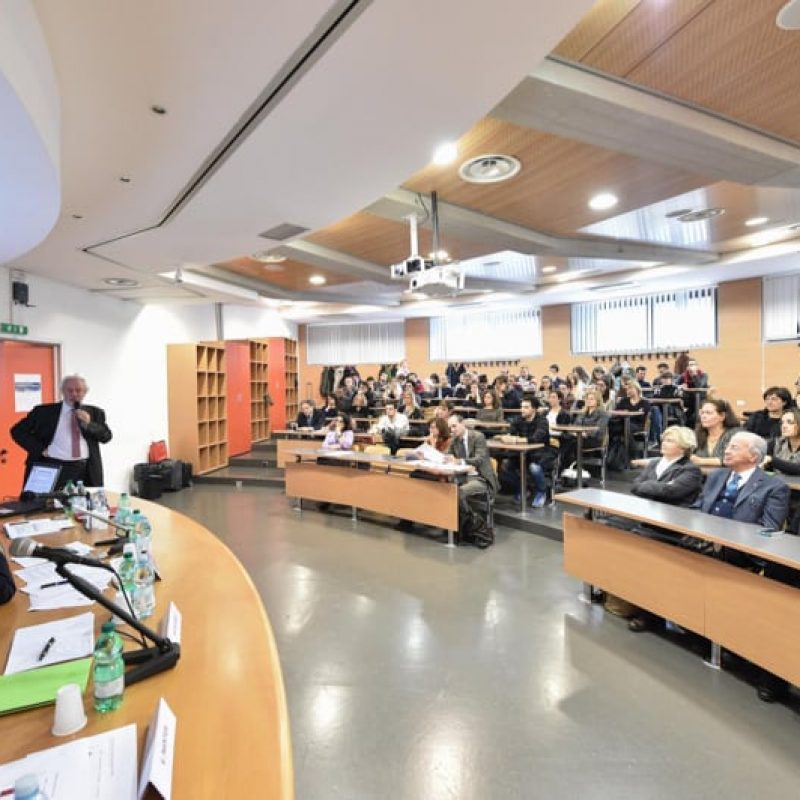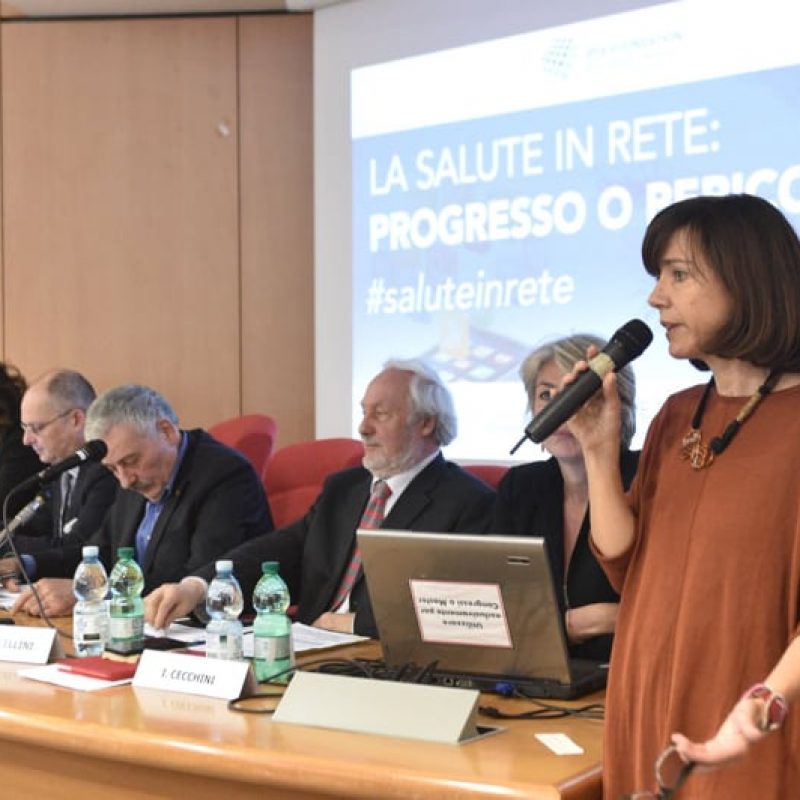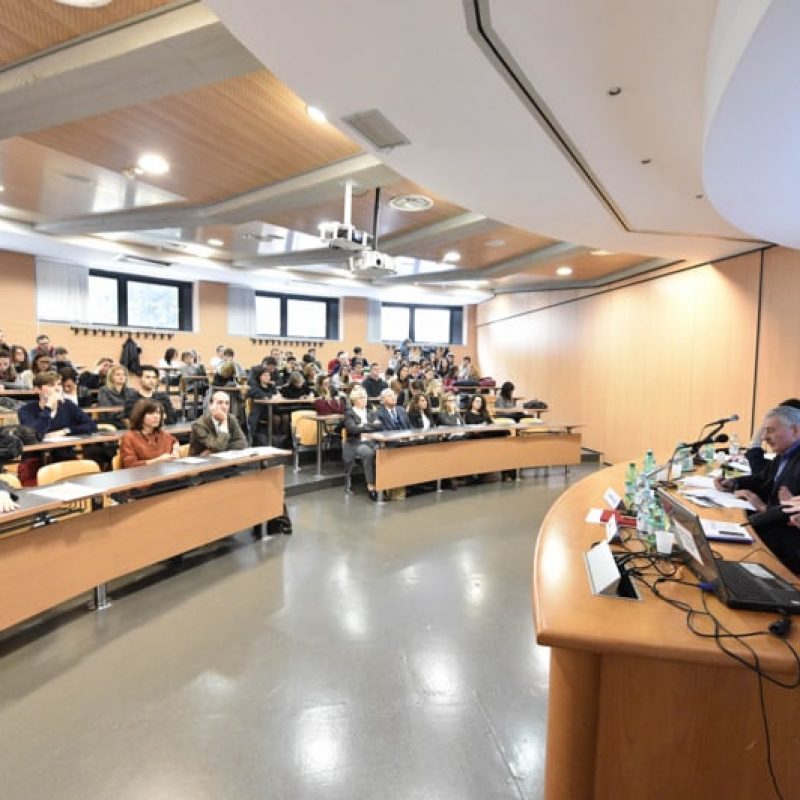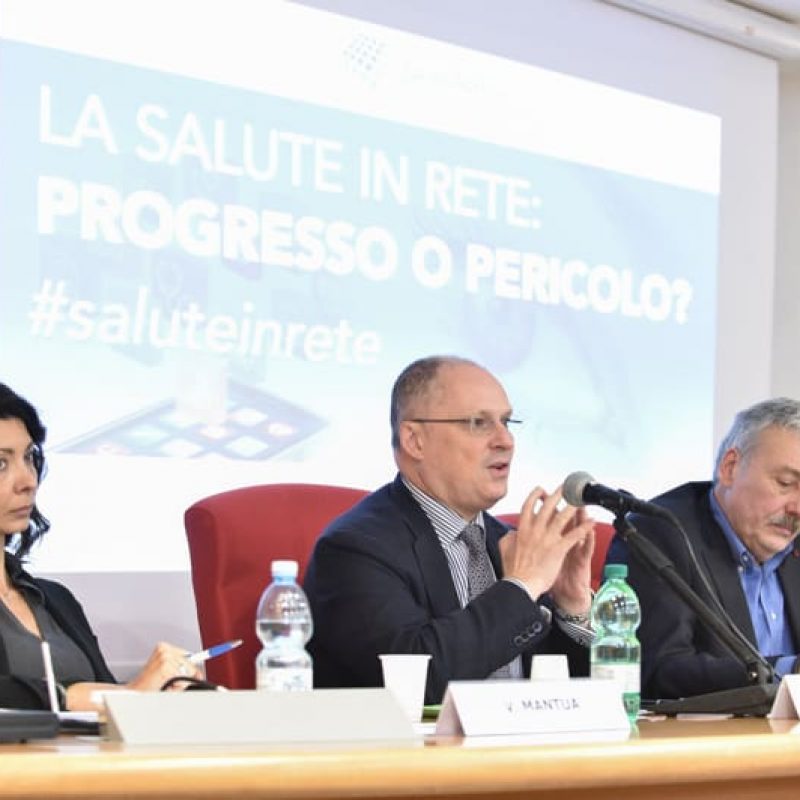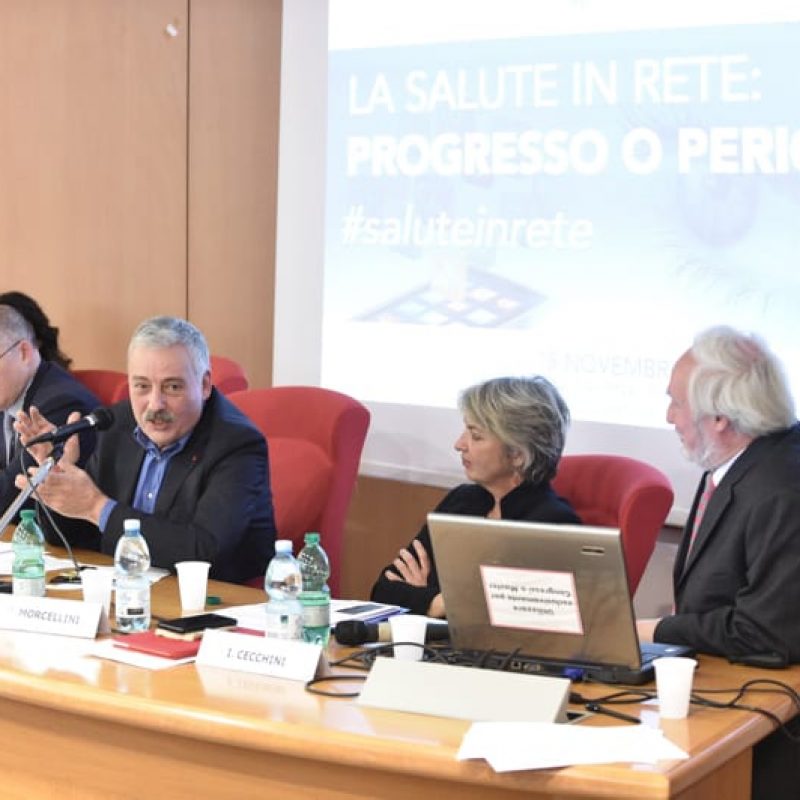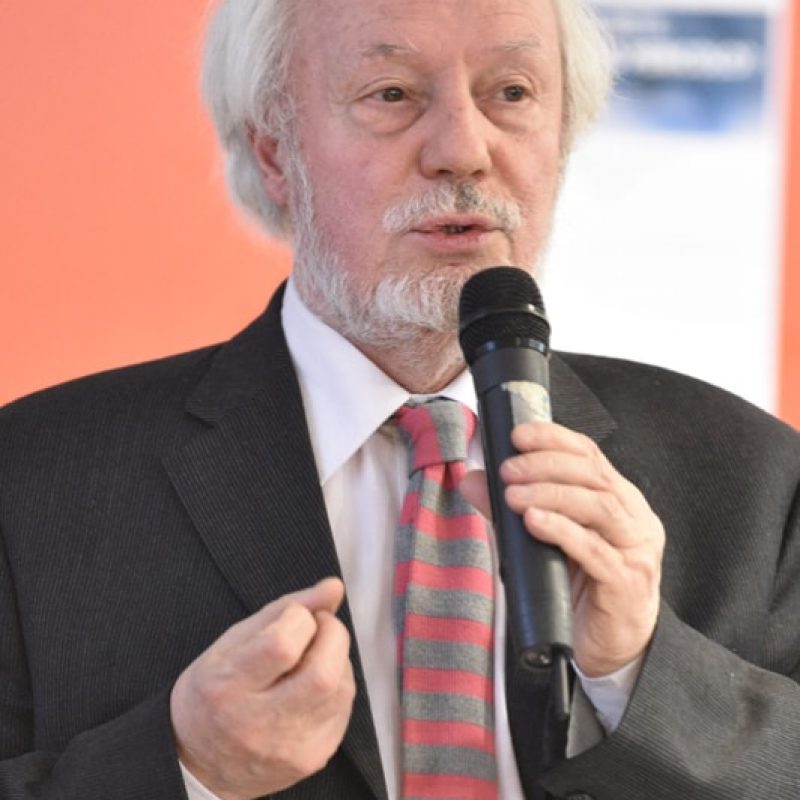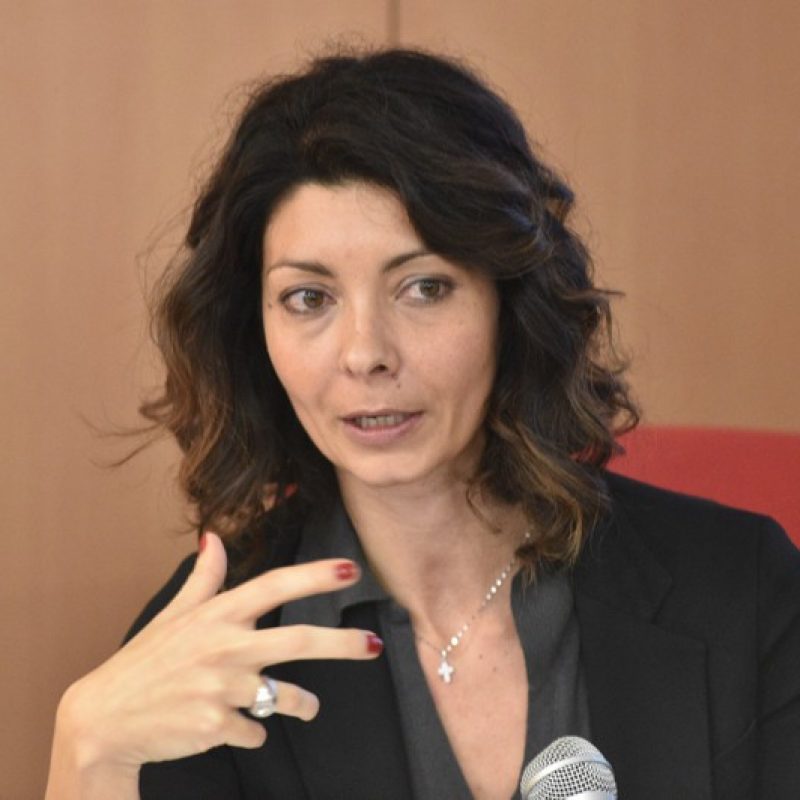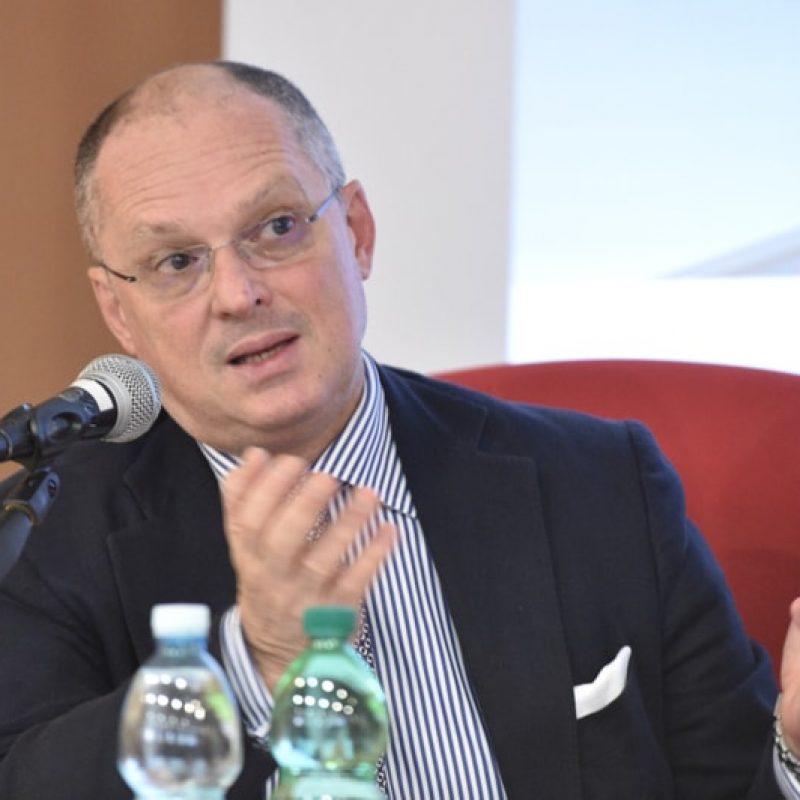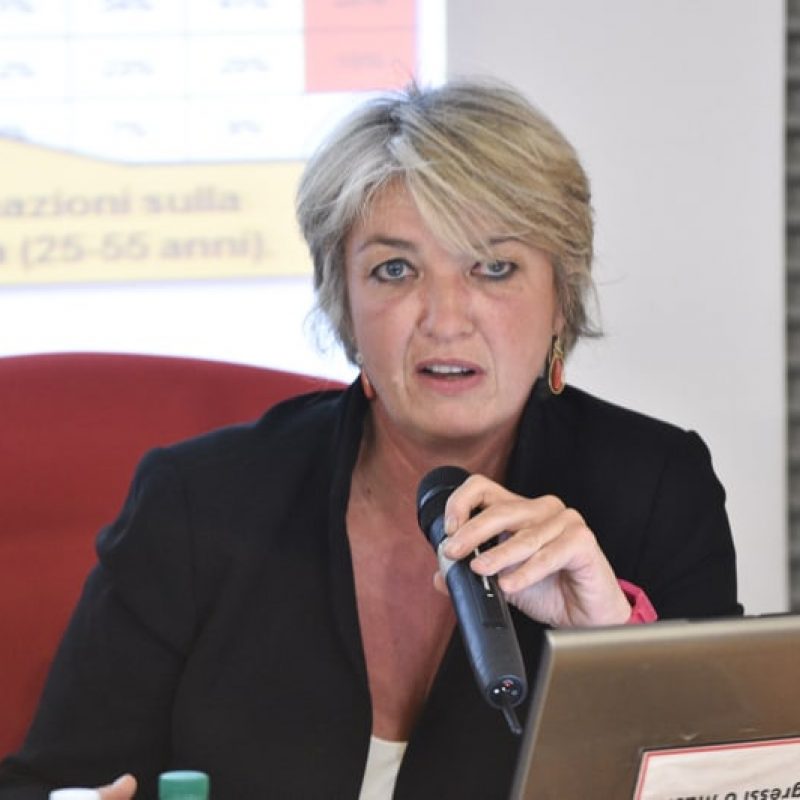Growth and increasing use of the Internet, social networks and mobile technologies have changed the way Italians get health information and influence each other about health.
To discuss these developments with scholars and experts, including representatives from Italy’s National Health Institute and the Italian Medicines Agency (AIFA), the IBSA Foundation promoted the workshop titled “E-health: progress or danger?” held at Sapienza University of Rome, Italy. The occasion for the discussion was the presentation of the findings of a survey polling a sample of 2,066 individuals our Foundation commissioned Gfk to conduct.
A main finding of the survey is that 1 in 2 Italians (2 out of 3 in the 25-55 age group) look online for health information. Doctors, either the GP (85%) or the medical specialist (68%), are still the number one source, but are now followed closely by the web, whose importance as a source of health information is confirmed by 49% of those polled and has surpassed advice from pharmacists (37%), family and friends (36%) and traditional media (24%).
The combination of the different sources varies according to the education level. People with a university degree turn to multiple sources including the GP (79%) and the web (73%), while people with only elementary schooling mostly turn to their GP (91%) and only marginally (8%) to the web. The information looked up online varies depending on the health conditions of the information seekers. Those with more serious health problems mostly seek information about their specific condition (83.7%) and about the best hospitals or medical facilities for their ailment (59.3%), while those in good health look for information about healthy behaviours and lifestyles (58.2%).
According to Professor Mario Morcellini, Director, Communications and Social Research Department, Sapienza University of Rome, Italy, communication and health are spheres whose interrelations are mutually beneficial. Health is an area of social life where communication can play a significant role in improving efficacy and reliability, its critical review of information contributes to health education and the dissemination of expert knowledge and hence to better, stronger health. And yet, today there is a mediation crisis in the medical profession – underscored Professor Morcellini – and the difficulty at this juncture is largely at the confluence of different competing rights: those of patients, doctors and communicators.
People look for different kinds of health information online. When asked “what type of health information did you search on the Internet?” 83% of Italians say they look for information about specific diseases, 66% for information about treatment and 64% for information about healthy lifestyles. Internet searches include searches for information about specific prescription medicines (44%) and OTC drugs (35%).
Dr. Valentina Mantua, Psychiatrist and Medical Executive, Italian Medicines Agency, believes democratisation of health information and data will bring about a revolution like the one we had when smartphones combining multiple functions in a single device were introduced, transforming the way we communicate and stay connected. It is the opinion of Dr. Mantua that the doctor-patient relationship, which is a keystone in medicine, is going to be revolutionised by the end of the asymmetry in knowledge that has characterised that relationship in the past.
AIFA’s challenge today is to provide information and data that is validated and certified by the regulator to a growing range of users. 188,000 doctors and other healthcare professionals already receive daily health and regulatory news through AIFA’s “Pillole dal Mondo” service. In the first 10 months of the year the AIFA website had over 3,000,000 visits and more than 9,000,000 page views. Dr. Mantua concluded by saying that, under the emerging peer-to-peer healthcare model, AIFA is bound to become the source and provider of evidence-based, real-time health information and updates.
Italians mostly look for health information on websites while blogs and forums are used by 1 in 4 Italians, mostly people from younger generations. The web is judged extremely positively as a source of health information, preferred over traditional media, especially by people who are highly oriented toward their health. The web is largely considered user-friendly (85%), useful (76%) and reliable (65%). People seem to use online resources in a balanced way. Analysing how much the health information found online influences people’s future choices and behaviours it was found it does so for only 48% of the polled sample, a figure that is consistent for people from all educational backgrounds.
After looking up online resources, people turn to their doctor for advice, as 63% of the population followed up with a visit to their doctor for further information and advice
And what is the doctor’s view of patients who get health information online? The ‘patient 2.0’ is often seen as a ‘threat’ as only 10% of GPs and 17% of medical specialists think that looking for information online helps patients better understand their medical condition and discuss it with their doctor. It is so probably because a significant portion of doctors (33% of specialists and 42% of GPs) believe getting health information online may complicate the doctor-patient relationship. This drives doctors and patients away one from the other and can damage their relationship.
Professor Walter Ricciardi, President, Italy’s National Institute of Health, is of the opinion that the web represents a huge opportunity to expand knowledge. However, when searching for information online people need guidance regarding the authoritativeness of the sources as quality of information is key in medicine. According to Professor Ricciardi, in Italy there are many websites providing information of varying quality – excellent, good or poor – in different health areas, but there is no web portal providing authoritative, evidence-based information on all health themes. Professor Ricciardi thinks people need some sort of Ariadne’s thread to find their way in the labyrinth of countless disparate resources found online, a tool that is flexible, uses plain language but provides rigorously scientific information, engaging people in a dialogue, educating them to apply the scientific method and strengthening the doctor-patient alliance.
In conclusion, reinforcing the doctor-patient alliance is fundamental as is providing doctors with tools that allow them to be a guidance for patients doing online searches. The doctor-patient relationship is to include the Internet to become stronger and bring patients and doctors closer to each other.
Location
Sapienza University, Rome
Date
November 8, 2015
Press Review
click here to download the PDF
Video
E-Health video
Video interviews
Photos
